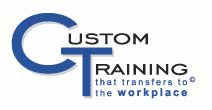new course
The extent to which members of the public have trust and confidence in the work of officers directly results from the perception that the officers are honest and competent, and that they treat people fairly and respectfully. Conflicts can arise when individual values clash with others’ cultural norms. At the same time, internal work conflicts in the office, facilities, or in field settings often stem from a lack of understanding about “what makes people tick.” The underlying causes of these types of tensions are often driven by the unconscious and uncontrolled biases that all people have, their implicit biases. Without the skills that help officers understand these biases, many unintentionally act upon them, creating friction and disharmony with the public and in work settings, eroding trust, cooperation, and productivity. In some cases there are increased complaints and worse. Procedural Justice refers to the idea of fairness in the processes that resolve disputes, and promotes improvement in the work culture by providing individuals with tools and a framework to make positive and healthy choices that reduce implicit bias. Using case studies, video, and practical, hands-on exercises, the course empowers officers, supervisors, and managers to identify their implicit biases and reduce its harmful effects. Procedural Justice teaches individuals to reframe their attitudes and modify their response to cultural tension by applying the LEED (Listen/Explain/Equity/Dignity) and GIFT (Giving Voice/Impartiality/Fairness/Transparency) models of Procedural Justice. The result is the development of a mindful, culturally intelligent officer who is well equipped to build stronger partnerships with the public and with work colleagues.

